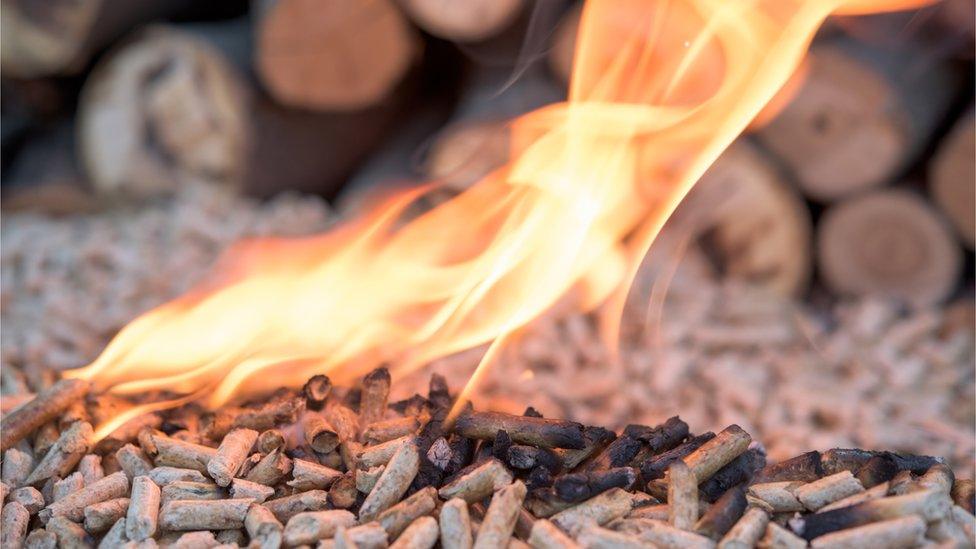Renewable Heat Incentive scheme: Whistleblower 'ignored' after reporting abuse claims
- Published
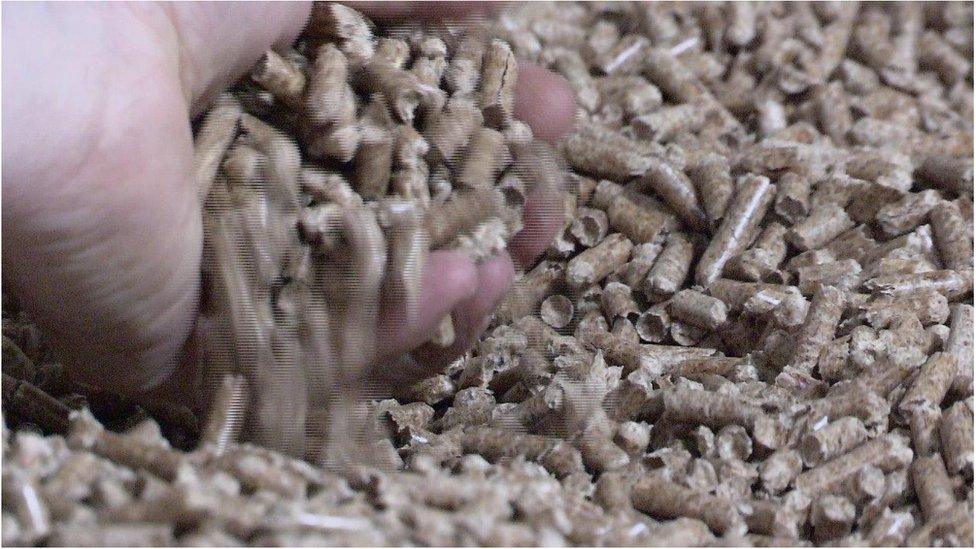
The green energy scheme was meant to encourage a switch to wood pellet burners
A whistleblower flagged concerns about abuse of a green energy scheme two years before it was shut down amidst controversy, leaving Northern Ireland taxpayers with a massive bill.
The person raised issues with the Renewable Heat Incentive scheme with the then Minister of Enterprise Trade and Investment, Arlene Foster.
She asked her officials to investigate.
But they did not believe the informant and the scheme continued until earlier this year when it was closed.
'Overgenerous subsidy'
A subsequent investigation has upheld allegations that it was abused to raise money, an assembly committee has heard.
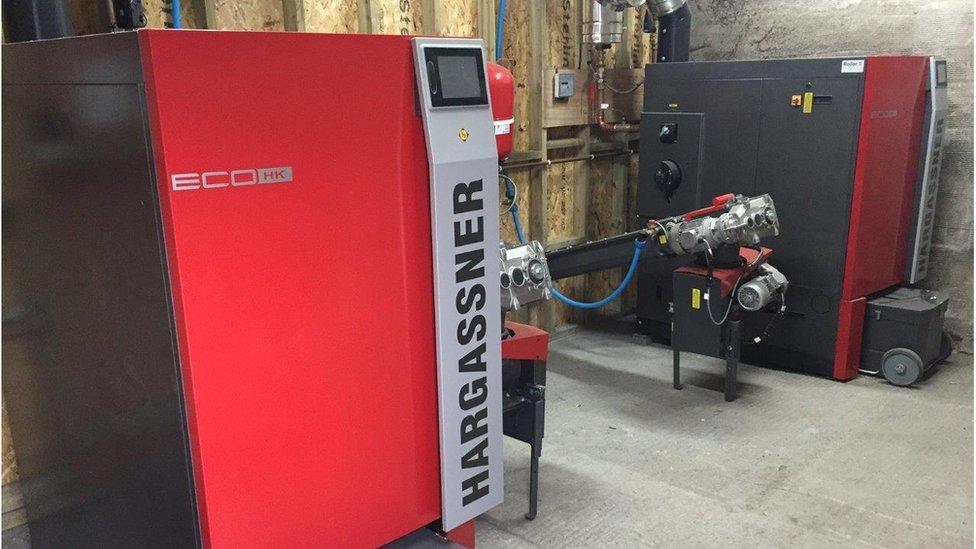
The was a huge spike of applications when it emerged the subsidy was going to be cut
The Renewable Heat Incentive was intended to encourage businesses to switch from oil to wood pellet boilers.
An overgenerous subsidy, poor oversight, and guaranteed payments for two decades saw the costs rack up.
It saddled the taxpayer with a bill of up to £660m over 20 years to be paid out of the Stormont budget when the Treasury confirmed its support was limited.

A whistleblower claimed factories which did not need the heat were running large boilers 24 hours a day to earn money
Money saved from training and skills programmes has already been used to help offset the cost.
The assembly's Public Accounts Committee was today taking evidence from the permanent secretary of the Department of the Economy, formerly DETI. which was responsible for the scheme.
Andrew McCormick said it was a "cause of great concern" to him that departmental officials had not believed the allegations of abuse raised by the whistleblower.
They were brought to Ms Foster's attention in October 2013.
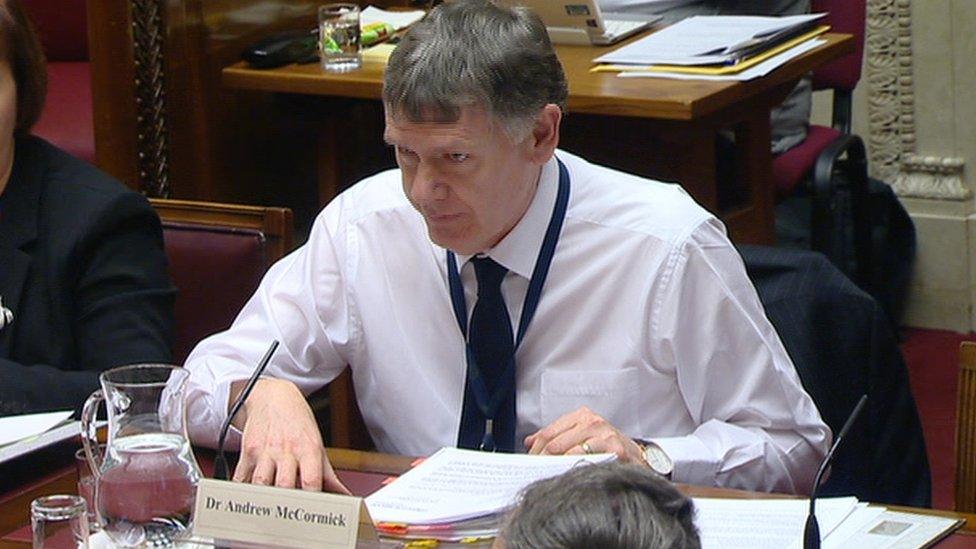
Andrew McCormick, permanent secretary of the Department of the Economy, said it was concerning that departmental officials had not believed the whistleblower
A team of around 10 officials had oversight of the allegations but they dismissed the claims and did not report back to the minister.
When officials realised there was a problem in the summer of 2015, and moved to cut the subsidy, there was a huge spike of applications in an attempt to beat the change.
It was finally shut in the early 2016.
The whistleblower was one of two to bring forward allegations. The other sent an anonymous letter to the first minister in January 2016.
It claimed that an empty farm shed was being heated for the subsidy and factories which did not need the heat were running large boilers 24 hours a day to earn money.
- Published5 July 2016
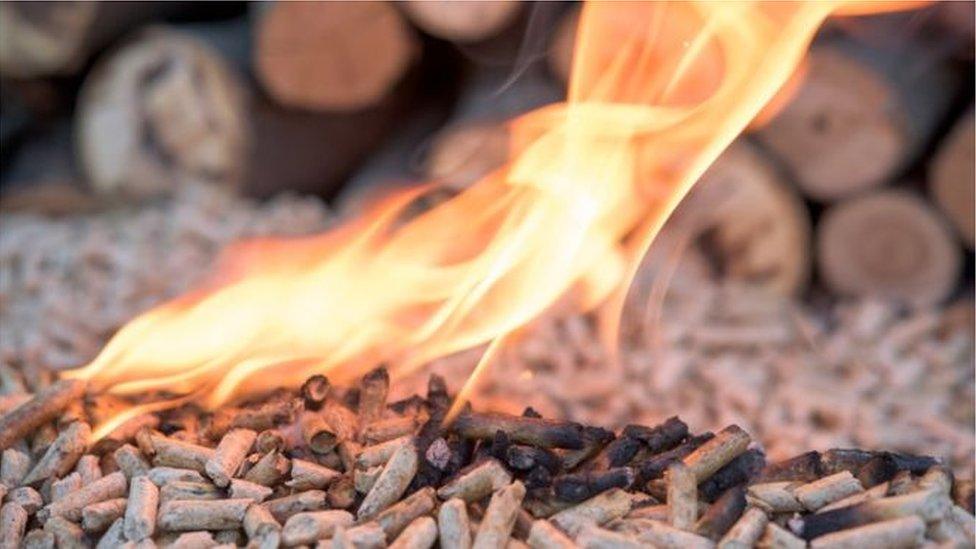
- Published9 February 2016
